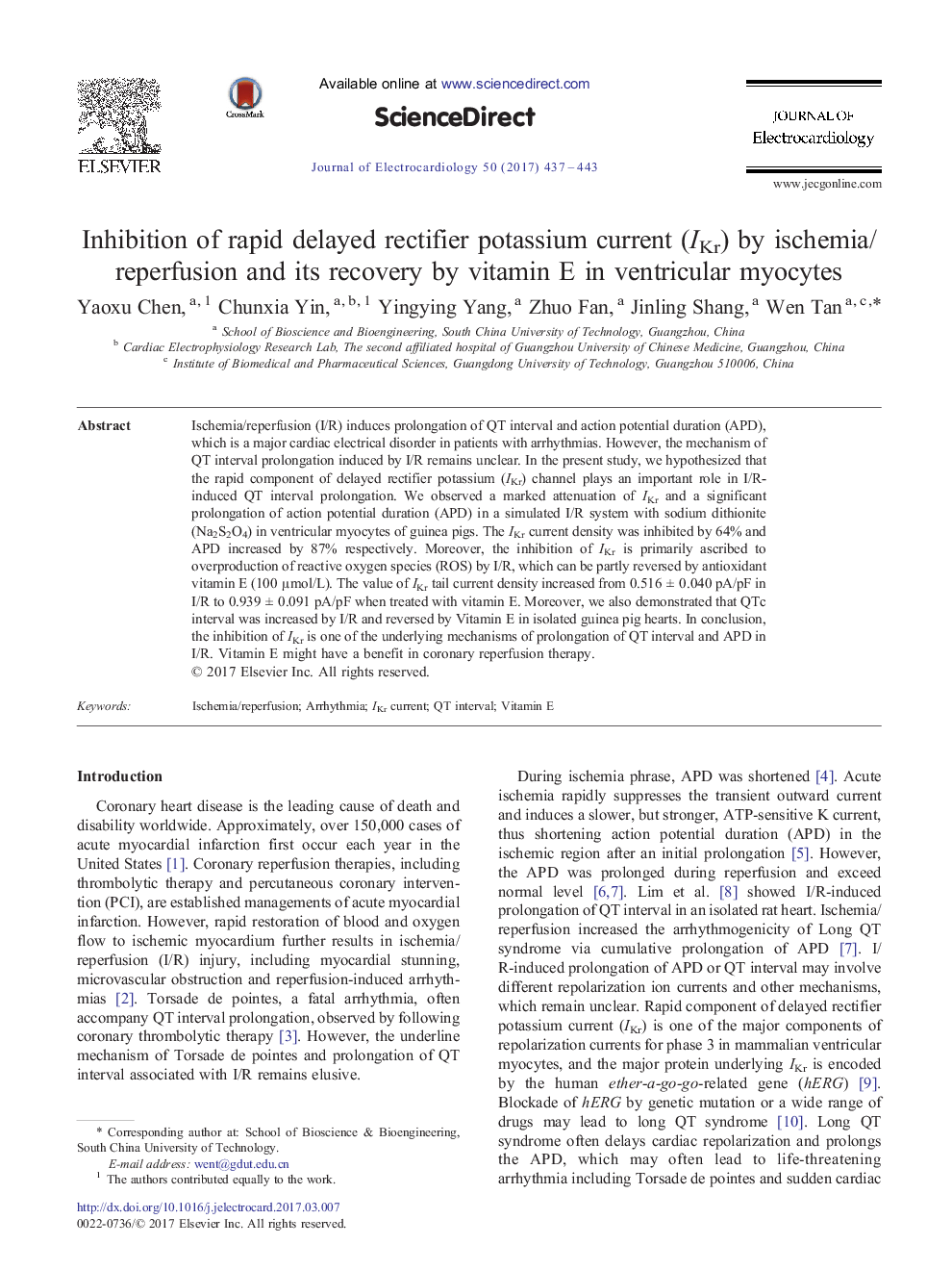| Article ID | Journal | Published Year | Pages | File Type |
|---|---|---|---|---|
| 5615483 | Journal of Electrocardiology | 2017 | 7 Pages |
â¢IKr plays a role in I/R induced QT prolongation.â¢I/R induces IKr attenuation in cardiomyocytes.â¢I/R induces APD prolongation in cardiomyocytes.â¢Inhibition of IKr is ascribed to ROS by I/R.â¢Vitamin E can reverses inhibition of IKr by I/R.
Ischemia/reperfusion (I/R) induces prolongation of QT interval and action potential duration (APD), which is a major cardiac electrical disorder in patients with arrhythmias. However, the mechanism of QT interval prolongation induced by I/R remains unclear. In the present study, we hypothesized that the rapid component of delayed rectifier potassium (IKr) channel plays an important role in I/R-induced QT interval prolongation. We observed a marked attenuation of IKr and a significant prolongation of action potential duration (APD) in a simulated I/R system with sodium dithionite (Na2S2O4) in ventricular myocytes of guinea pigs. The IKr current density was inhibited by 64% and APD increased by 87% respectively. Moreover, the inhibition of IKr is primarily ascribed to overproduction of reactive oxygen species (ROS) by I/R, which can be partly reversed by antioxidant vitamin E (100 μmol/L). The value of IKr tail current density increased from 0.516 ± 0.040 pA/pF in I/R to 0.939 ± 0.091 pA/pF when treated with vitamin E. Moreover, we also demonstrated that QTc interval was increased by I/R and reversed by Vitamin E in isolated guinea pig hearts. In conclusion, the inhibition of IKr is one of the underlying mechanisms of prolongation of QT interval and APD in I/R. Vitamin E might have a benefit in coronary reperfusion therapy.
